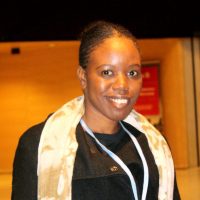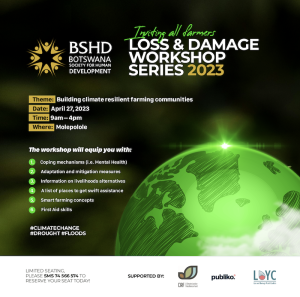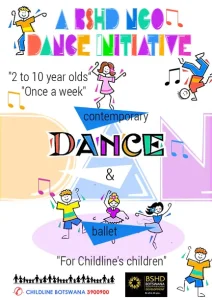The Intergovernmental Panel on Climate Change (IPCC) posits that, because of climate change, humanity is facing threats to human rights e.g. life. The scale of the threats to the biosphere and all its life forms is purported to, in fact be, so great that it is difficult to grasp for even well-informed experts. Dependent on planetary health, key development sectors across the globe are thus enduring widespread loss and damage attributable to anthropogenic climate change. The crisis include biodiversity loss, water shortages, reduced food production, loss of lives and decelerated economic growth.
Felt and seen disasters such as wildfires, heatwaves, floods, and hurricanes have increased drastically in the past few years. Disaster survivors have suffered significant losses, including the loss of loved ones, pets, their home, their hometown, and/or their livelihood.
The loss and damage has resulted in people undergoing a psychological phenomenon that has become more widespread in recent years, as the general public grows increasingly aware of the stark realities of climate change. Dubbed as “climate anxiety”, “eco-anxiety”, or “climate grief”, these terms refer to the thoughts, emotions, and accompanying physical sensations (e.g., tightening of the throat, rapid heart rate) that can be triggered by an awareness of the losses sustained and the future threats engendered by human-caused climate change. Though climate change has been declared a health emergency by governments, academics, advocacy groups, and medical associations, studies show that attention has largely focused on the negative impacts of climate change on mortality and physical health. However, as leading psychological associations have begun to recognize, climate change also has profound implications for mental health.
Simply bearing witness to the negative impacts of climate change or learning about how climate change is causing suffering to people and ecosystems around the globe, can lead to significant psychological suffering, including anxiety, grief, fear, anger, and guilt.
Why Botswana:
Though Botswana does not rank among the most affected, the semi-arid country has since incurred loss and damages due to floods, cyclones and droughts. Over the past decade, Botswana has had 7 drought years, and 3 partial drought years. The country has also suffered the effects of cyclone Dineo, and other flooding issues. Veldt fires have also become a regular occurrence, especially among Okavango Delta communities. Loss and damage thus includes, loss of homes, loss of livestock and crops, among individuals, to name a few challenges. In the 2018 Climate Risk Index, Botswana ranked 135 and registered losses amounting to USD135-million (purchasing power parity).
BSHD’s Loss and Damage project is therefore centred on addressing the mental health problems that individuals are left with. Droughts, for example, have left some farmers hospitalised and destitute, forcing them to abandon farming, resorting to government safety nets. The proposed mental health workshops will thus target people that lost cattle, crops, tourism business etc. to droughts in Maun and the Kweneng area. In the Zoroga, Tshokatshaa, and Gweta villages we will target flood victims.
The plan is to go beyond mental health by sharing climate change adaptation and mitigation strategies with the audience. We will also avail first aid training to our participants, as well as hopefully give each participating household a first aid kit. This is so we prevent loss of lives from heat stress and drowning. Once lost, human lives cannot be bought back. The project will also explore ways that villagers without access to information communication tools can receive early warning messages. This is crucial as the repair and restoration process takes years. To prevent and/or reduce potential loss and damage is therefore key.
Project objectives:
To share coping mechanisms
To highlight places where participants can swiftly get assistance
To equip participants with first aid skills
To share adaptation and mitigation measures
To help citizens determine their role play in the climate fight
To sensitise the whole nation on loss and damage issues
To create a loss and damage network of relevant development stakeholders—including ordinary citizens.
To make people aware of livelihoods alternatives (some of which are a result of climate change).
Workshops themes:
Building climate resilient farming communities
Remedying declining mental health due to flooding disruptions
Increasing environmental awareness, fostering climate resilience among nature-based tourism operators
Project approach:
Workshop 1: The Molepolole workshop will target crop and livestock farmers.
Workshop 2: To be held in Zoroga, targeting Zoroga, Tshokatsaa and Gweta villagers.
Workshop 3: It will be held in Maun, specifically targeting community-based tourism operators.
Outcome and Activities of the project
Outcome Activities
Outcome 1
Resilient communities
Act 1: Workshop
Act 2: First Aid Training
Act 3: Mental health (free counselling)
Outcome 2
Loss and Damage Awareness
Act 1: Workshop sharing climate change effects
Act 2: Workshop highlighting loss and damage in the context of Botswana
Outcome 3
Early warning system for people without ICT access
Act 1: Dialogue and engagement with the disaster risk management office, department of meteorology, and network providers, who will all work with traditional leaders to ensure messages are received on time.
Support or Partner with us:
Support and/or partnership is welcome from all stakeholders with an interest in climate action. To achieve intended outcomes, the Loss and Damage Project needs support e.g. workshop facilitators. Contact us at: contactus@bshdngo.org for further dialogue and engagement. This project is largely made possible by the Loss and Damage Youth Coalition (LDYC), through the Climate Justice Resilience Fund (CJRF).


